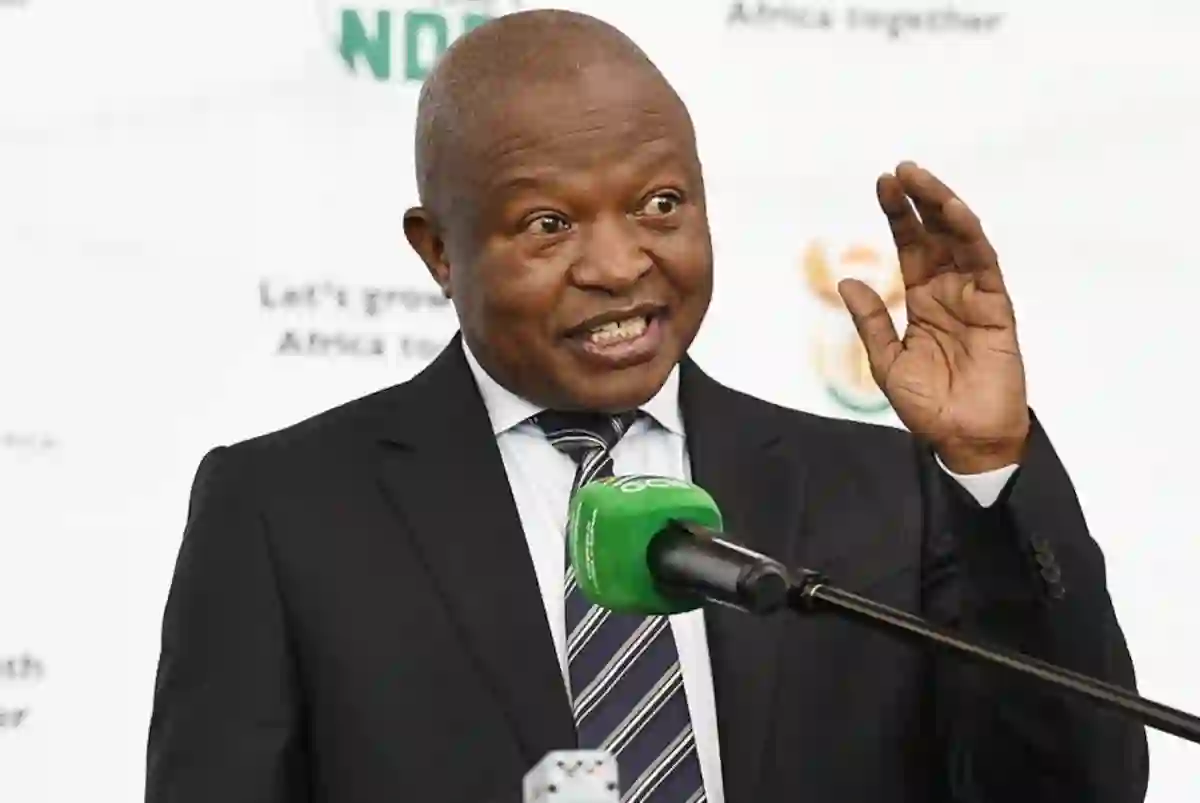Under the soft, unexpected warmth of a winter sun, the hills of Mpumalanga carried a quiet sorrow on Saturday.
As the nation looked on, South Africa said its final farewell to one of its most enigmatic leaders—David “DD” Mabuza.
Known for his strategic mind and grounded presence, Mabuza passed away last week at the age of 64 after a brief illness.
He was laid to rest at his family burial site in Barberton, the place he always called home.
A Life Remembered by the People—and the President
President Cyril Ramaphosa led the tributes with a moving eulogy, calling the day one of “solemn remembrance” and celebration of a man who played a central role in shaping democratic South Africa.
“DD,” as he was affectionately called, was praised for his unwavering service to the people, not only in Mpumalanga but across the nation.
Ramaphosa described him as “a man of the people,” who never distanced himself from those he served—even while holding one of the highest offices in the land.
From Teacher to National Leader
Mabuza started his career as a teacher, but his path soon shifted toward political activism and ultimately, public service.
His first official role came in 1994 when he joined the Mpumalanga government as a Member of the Executive Council.
From there, his political journey steadily climbed.
He served as Premier of Mpumalanga for nearly a decade, before stepping onto the national stage as Deputy President in 2018.
Within the ANC, he also held the title of Deputy President of the ruling party—known for his sharp political instincts and quiet but calculated leadership style.
A Leader Who Preferred Action Over Applause
As the President spoke, the streets of Mbombela filled with ordinary South Africans—lining up to create a symbolic guard of honour for their late leader.
“He felt most at home among the people,” Ramaphosa said, reflecting on how Mabuza would often skip the formality of office to listen directly to citizens’ needs.
It wasn’t just talk. Ramaphosa shared stories of how Mabuza would act immediately when he saw poor living conditions during community visits.
He once personally helped fund the construction of homes for families in need—actions that earned him deep respect in his home province.
His Legacy Lives On in Everyday Lives
In the days following his passing, young people from Mpumalanga described DD as more than a politician—they called him a father figure.
His ability to deliver results in rural and underdeveloped areas stood out in a country often frustrated by slow service delivery.
President Ramaphosa emphasized that Mabuza’s approach to leadership was deeply personal.
“He didn’t believe in empty promises. If something needed fixing, he found a way to get it done,” the President said.
A Trusted Deputy and Loyal Partner in Governance
Reflecting on their five years serving together, Ramaphosa spoke warmly about Mabuza’s reliability and calm leadership style.
As Leader of Government Business in Parliament, Mabuza worked to make sure the country’s laws reflected the people’s will.
Whether tackling land reform, the fight against HIV/AIDS, or support for military veterans, he showed up and delivered.
“He was always steady,” Ramaphosa said.
“Even when political winds shifted and storms gathered, he held the centre.”
A Poetic Goodbye From the President
In a touching tribute to close the ceremony, Ramaphosa turned to poetry, sharing heartfelt lines directed at his late colleague:
“You walked the path not always lit,
through the dust of doubt, you did commit…
Though storms did gather, and winds did sway,
you held the centre night and day.
Now rest, my brother, brave son of the African soil.
Your work is done and complete.”
The People Mourn, But the Legacy Remains
David Mabuza’s story is not just that of a politician—it’s a reminder of how service, humility, and follow-through can leave a lasting impact.
His passing marks the end of an era in South African politics, but the memory of his leadership—both quiet and effective—will continue to shape the future.



